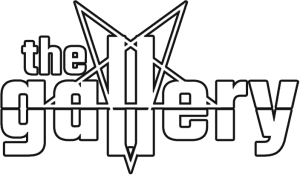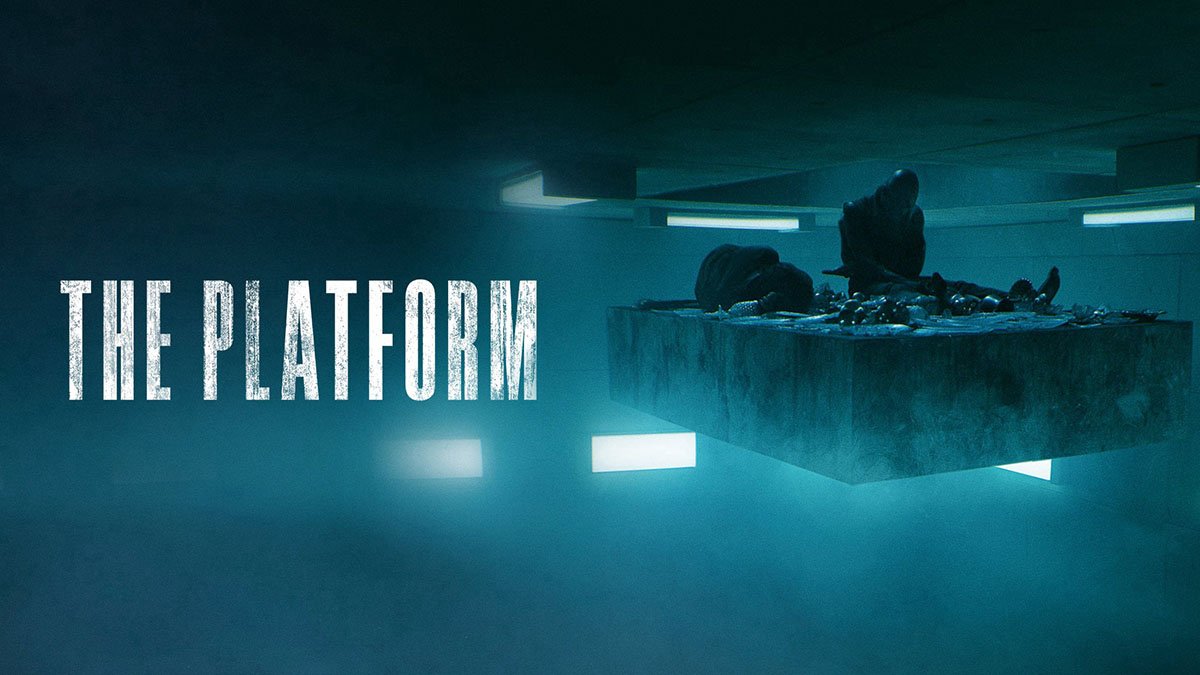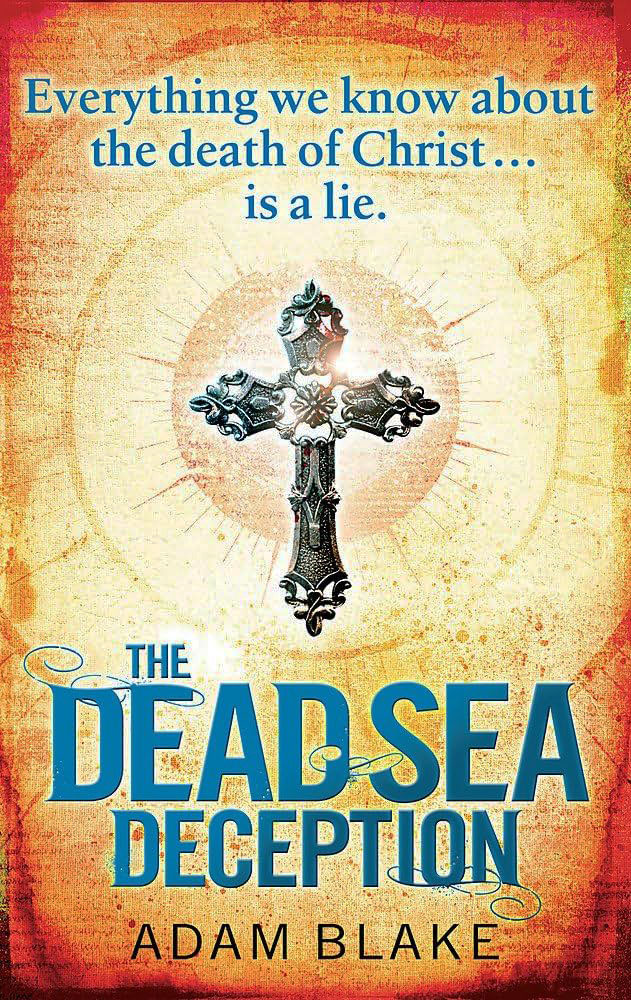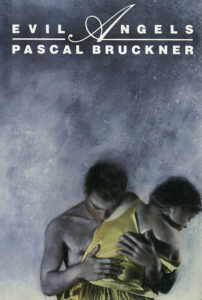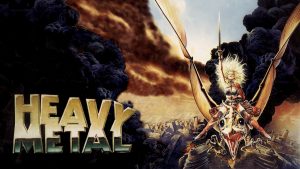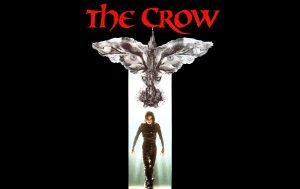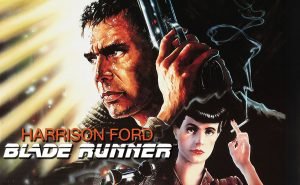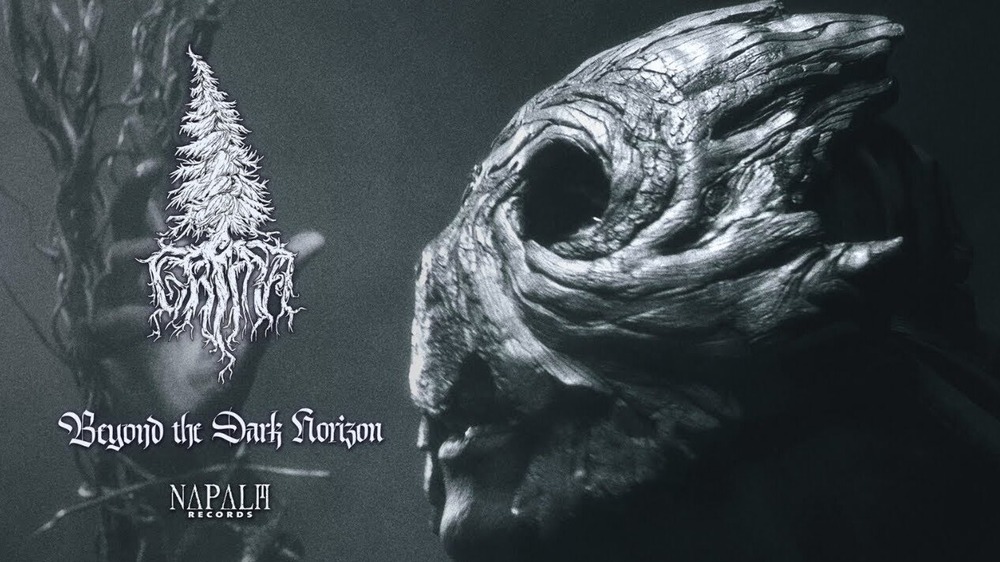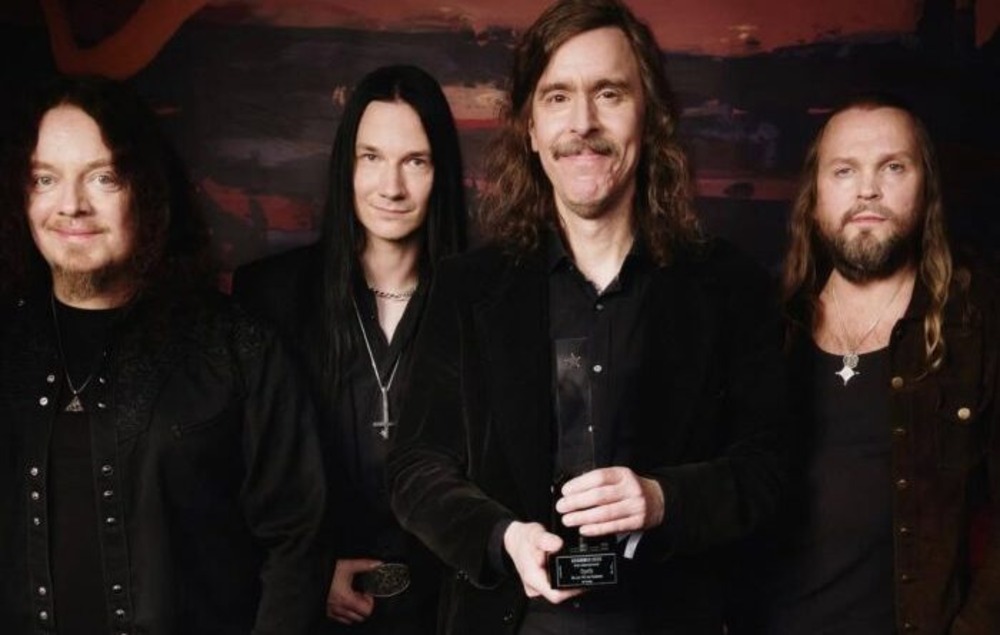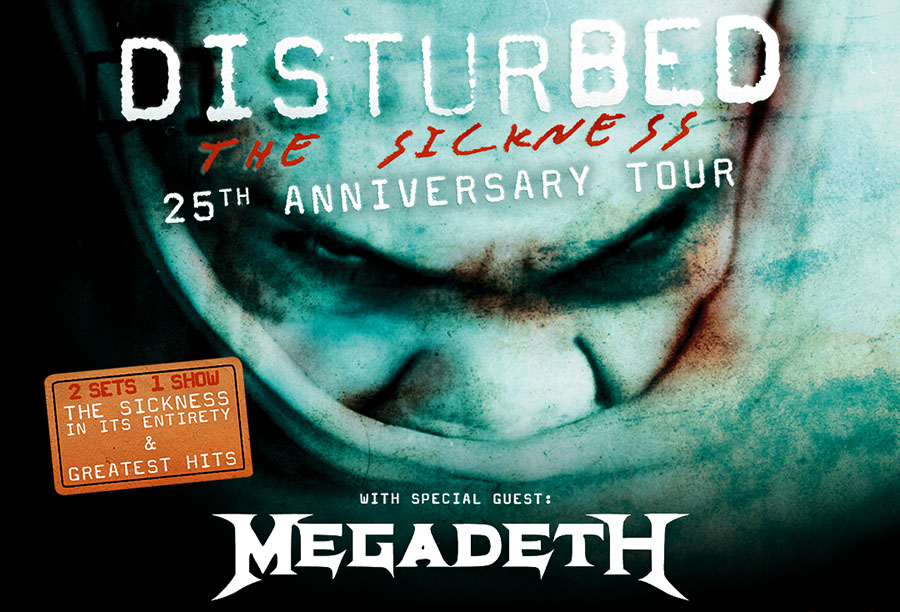“There are three types of person. Those at the top, those at the bottom…and those who fall.”
Back in 1997 many of us where taken by storm by a film that hit the theaters in march and stayed on the big screen for a very short amount of time, giving its place to huge Hollywood productions such as the Titanic, Jurassic Park: The Lost World, Men in Black, Liar Liar etc. The Canadian independent science-fiction horror was the Cube, directed and co-written by Vincenzo Natali, and it portrayed some people trapped in the titular cube as they cross industrialized cube-shaped rooms, some rigged with various traps designed to kill. Cube has gained notoriety since and a cult following leading to a sequel and a prequel both of which were negatively received by the audience.
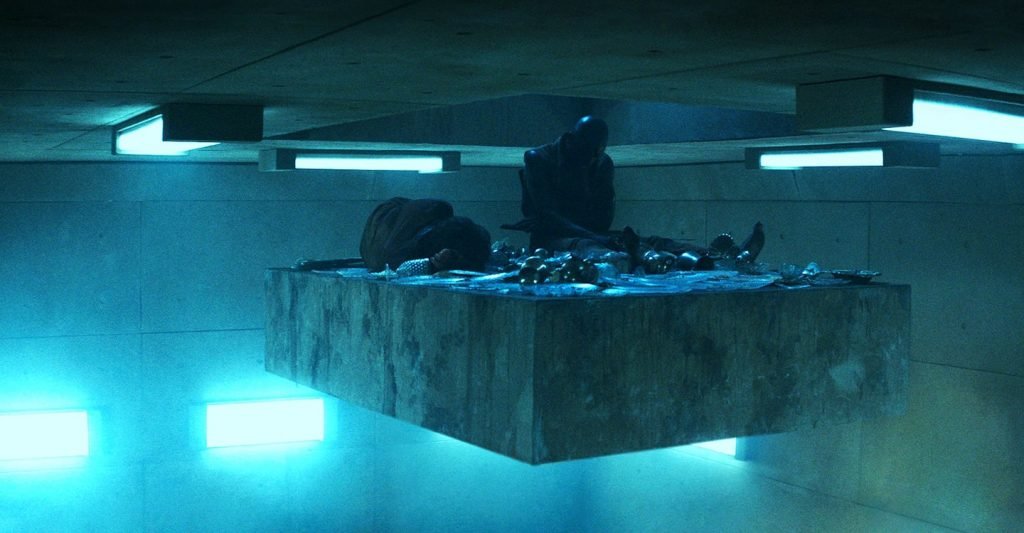
The same, more or less, would have been expected for The Platform if it was released a decade ago: It would have had a limited theatrical release, gaining a cult following in midnight screenings around the world before really catching fire on DVD as a word-of-mouth genre hit. All of those steps are gone in 2020, and it’s now on Netflix for millions of people to watch. The film by Galder Gaztelu-Urrutia, won the People’s Choice Award for Midnight Madness at the Torronto film Festival and also did splendid with four honors at the Sitges film Festival and then came Netflix to take over its distribution all around the world.
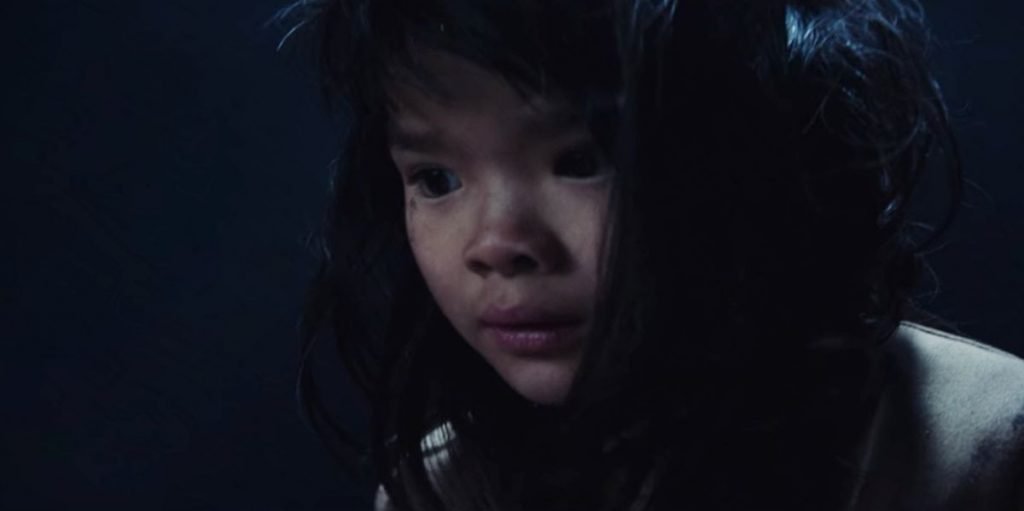
The story goes as follows: Inside a vertical prison system, inmates are assigned to a level and forced to ration food from a platform that moves between the floors. On level 1, the prisoners have access to a feast of lovingly prepared dishes. If everyone only ate a small ration, it could make it all the way to the bottom with something for each prisoner. It never does. Once every moth the inmates change floors and it’s possible for everyone to find themselves from the top to the bottom and vice-versa.
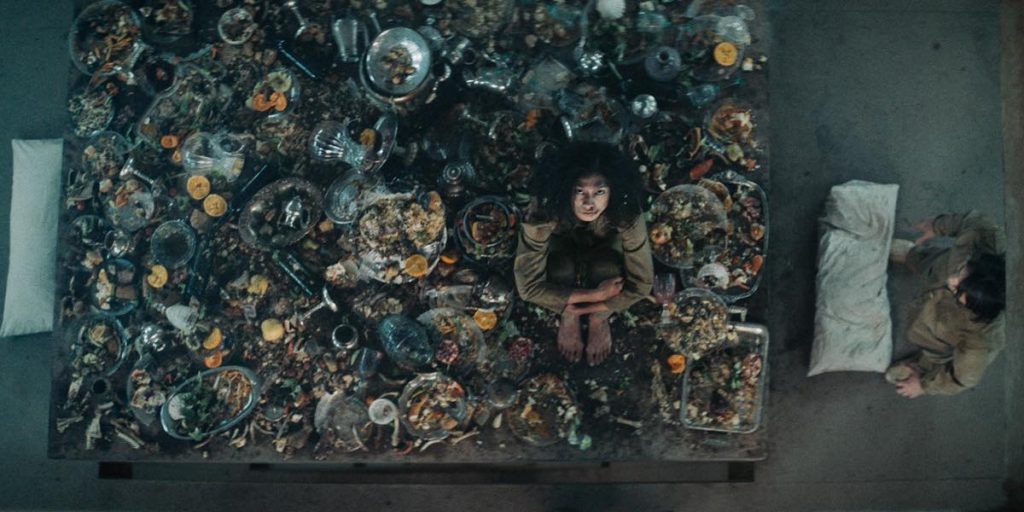
The Platform is a twisted social allegory about mankind at its darkest and hungriest. And in my opinion during the last two years when cinema turns more and more toward politics (Joker-2019, Parasite-2019) this film is the most political of all. In a way it takes the vague politics of the 90’s (Cube), the idea that people imprisoned or trapped in an impossible situation would portray stereotypical behaviors: the oppressive, the totalitarian, the fanatic, the weak hearted, the freedom fighter (the above being almost every Stephen King fiction) and It elaborates. Because what is politics indeed, if not different propositions on how to coexist with one another in a structured society? The Platform takes the former individualistic stereotypical theme and it broadens it changing perspective and portraying not the characters as much, as their different “propositions” regarding the way their main problem (food) could be addressed. It is stereotypical but from the perspective of showing and criticizing political systems rather that characters.
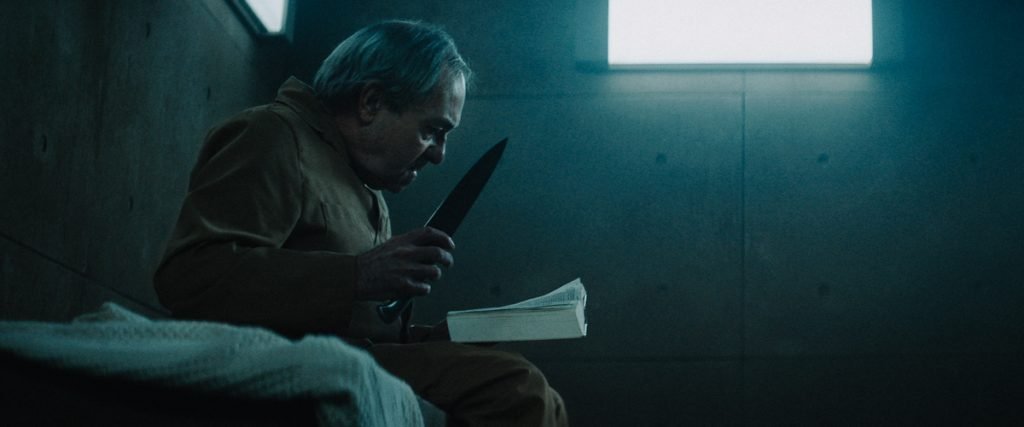
The film aired on Netflix on the 20 of March 2020. Already most of the western world was into strict quarantine. During that period of voluntary confinement because of COVID-19, watching The Platform was almost a painful experience. The director told the Guardian that the film is about “[…] an allegory about the distribution of wealth, which is a universal debate and a debate that’s been going on for as long as people have been around. […] If, instead of putting food on the platform, we’d made it face masks or toilet paper or ventilators, we’d be having exactly the same debate.” (The Guardian, “What Netflix tells us about humanity in the Coronavirus Era?”).
As Brian Tallerico comments: “The social parable is clear—if the haves didn’t take more than they needed, there would be enough for the have-nots. However, writers and director aren’t content to merely sit back on that idea, expanding on it and unpacking it with each new development. It’s a film with multiple impressive twists given its limited setting, and each of them casts a new light on how the movie is supposed to reflect society. I particularly found fascinating the way the changing floors impacted people who had been on lower levels before but were now lucky enough to be high. Rather than be sympathetic to those in a place they just were, they seem to take even more, making up for lost time and aware they might not get this close to the top ever again.” (Brian Tallerico, “The Platform”).
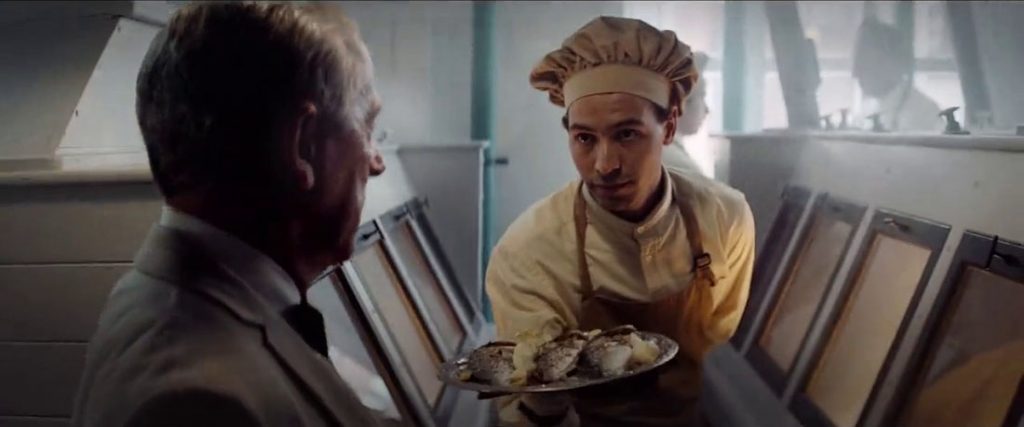
And Tallerico’s last sentence is something that the director also underlines even more precisely: “The point of The Platform is that it isn’t about a war between those above and those below – we all have someone above us and someone below us. The question is: what am I going to do from where I am to fight this selfish structure that runs throughout our society and species?”
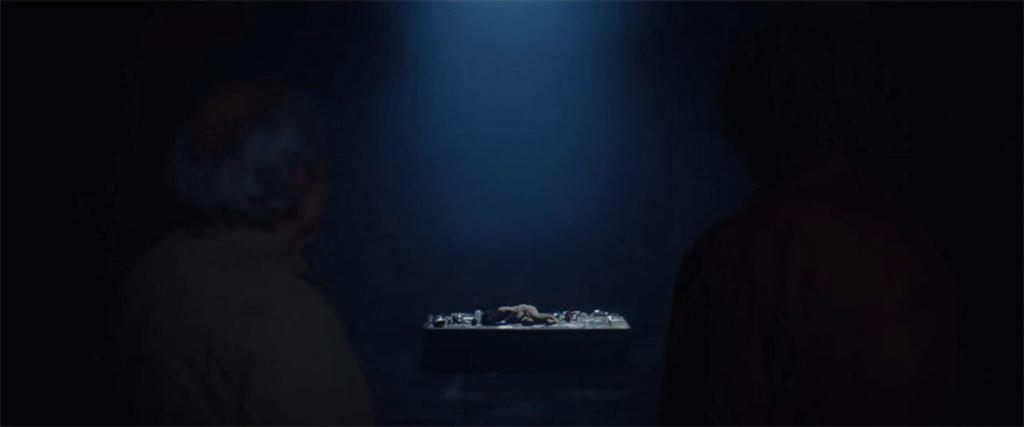
The Platform is also a grisly, gnarly horror film, one that becomes surprisingly bathed in blood during its action-heavy final act. And it surely is not just a remix of ideas from other films but rather a daring piece of genre filmmaking. And, of course, like everything, it has a different energy now. As we see how society functions (or fails to do so) in the face of one of history’s most devastating crises, take some time out and watch “The Platform,” a funhouse mirror reflection of our world.
Text: Yiannis Tziallas
Related Link: Yiannis Tziallas – Official Page
Copyright © 2020 by THEGALLERY.GR
